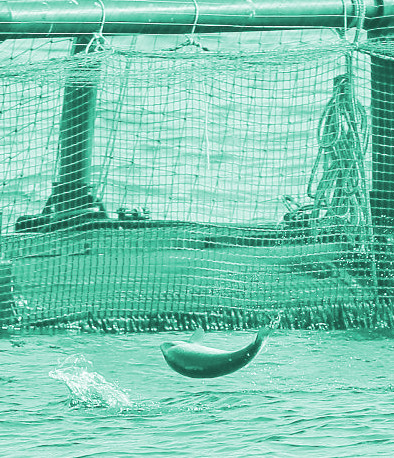Tassal attempts uncovered
 Tassal - one of Australia’s biggest salmon farming companies - reportedly tried to stop the public release of a report on antibiotic use in fish farms.
Tassal - one of Australia’s biggest salmon farming companies - reportedly tried to stop the public release of a report on antibiotic use in fish farms.
According to recent reports, Tasmania's largest fish farmer, Tassal, attempted to block the release of the report, claiming its findings were “commercial in confidence”.
Documents obtained by reporters through Right to Information laws indicate that Tassal had used more than 600 kilograms of antibiotics to combat a bacterial vibrio disease outbreak near Coningham in January of last year.
Further, the investigation into the incident revealed that Tassal also attempted to prevent the release of information about the use of 1.3 tonnes of antibiotics at its Okehampton Bay leases on the east coast of the state.
EPA director Wes Ford confirmed that he had “no power to compel the documents to be released” at the time.
However, he stated that in the last few years, he had directed salmon companies to provide reports for publication.
He also noted that the government had amended legislation to give him specific powers to release information in the future.
Mr Ford said that since 2016, fish farmers had used antibiotics nine times to treat bacterial outbreaks, but many of these instances had gone unreported because reporting was not required.
Greens environment spokeswoman Rosalie Woodruff has criticised the lack of regulation, calling it a “grotesque failure”.
She demanded real-time reporting of antibiotic use and a ban on antibiotic use in Tasmanian waters through fish feed, with a move towards vaccination, in line with WHO recommendations.
According to Mr Ford, elevated levels of antibiotics were found in native fish caught near fish pens. However, he argued that the risk to public safety was low, citing medical advice.
When asked if real-time reporting was necessary to alert fishers to areas with high antibiotic levels, Mr Ford did not rule it out, saying that the discussion needed to continue.
Tasmanian Premier Jeremy Rockliff has expressed his support for greater transparency in the salmon industry to build public confidence.
He says he believes the use of antibiotics in the industry is rare and that the EPA was effective in operating independently and transparently.
The reports could stoke existing concerns about the lack of transparency and regulation in Tasmania's salmon industry, particularly with regards to antibiotic use.
While the government has taken some steps towards greater transparency, there are calls for real-time reporting and a move away from antibiotic use in fish feed.







 Print
Print